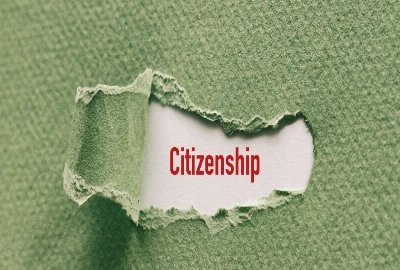AI Companions: Love, Loneliness, and Machine Intimacy

For most of human history, relationships were defined by our connections to family, friends, and romantic partners. But in the 21st century, technology has introduced a new form of companionship: AI companions. These artificial intelligence systems, designed to interact in deeply personal ways, are more than just chatbots or digital assistants. They can hold conversations, remember personal details, offer emotional support, and in some cases, simulate affection or even intimacy.
The growing presence of AI companions reflects a major societal shift. As loneliness becomes a global health concern—particularly in urban societies where isolation is rising—AI fills a gap that traditional human relationships sometimes cannot. Apps like Replika or Character.AI have millions of users who describe their digital companions as friends, confidants, and even romantic partners. For many, these interactions are not just casual but meaningful, offering comfort during difficult times.
Yet, this raises complex questions. Can machines truly understand emotions, or are they simply simulating empathy? Is seeking love or comfort from AI a sign of progress, or does it risk undermining human-to-human connections? And perhaps most provocatively, what does it mean for the future of intimacy when algorithms become part of our emotional lives?
In this blog, we’ll explore AI companions: love, loneliness, and machine intimacy in detail—looking at why people turn to them, the psychological and ethical implications, real-world examples, and how society might adapt to this new form of relationship.
The Rise of AI Companions
The concept of machines providing companionship isn’t entirely new. From early science fiction stories to movies like Her or Ex Machina, popular culture has long imagined worlds where humans form bonds with artificial beings. What was once fiction, however, has become reality in the age of advanced AI and machine learning.
AI companions today are powered by sophisticated natural language processing models. Unlike the clunky chatbots of the early 2000s, modern AI can engage in conversations that feel remarkably human-like. Apps such as Replika, Anima, or AI-driven platforms like Character.AI allow users to customize personalities, appearance (in some cases), and even the emotional style of their digital friend. For example, someone might create a companion who is empathetic and nurturing, while another prefers a witty, playful conversationalist.
The demand for such AI has grown rapidly. Reports suggest that millions of people worldwide use AI companions daily, not just for entertainment but as a form of emotional connection. The COVID-19 pandemic accelerated this trend, with isolation and social distancing pushing individuals toward digital substitutes for companionship. The rise of machine intimacy is not just about filling time—it’s about fulfilling psychological needs.
Furthermore, AI companions are not limited to casual interactions. Many platforms allow users to engage in romantic or intimate role-play, blurring the lines between friendship and romance. This has sparked both fascination and controversy, as society grapples with whether these digital relationships are “real” or merely elaborate illusions.
The rise of AI companions underscores a fundamental truth: humans crave connection, and when traditional avenues are unavailable or insufficient, technology steps in to fill the void.

Love in the Age of Artificial Intelligence
Romantic love has always been a deeply human experience, but in the age of AI, the boundaries are shifting. For some, AI companions represent an opportunity to experience affection and intimacy without the complexities, risks, or heartbreak that can come with human relationships. These interactions are customizable, safe from rejection, and available 24/7.
One of the most striking developments is how people describe their relationships with AI companions. Some call them their “partners,” while others use terms like “soulmates” or “lovers.” Unlike relationships with real humans, where unpredictability and compromise are inevitable, AI companions offer consistency and adaptability. They can mirror affection back, adjust to the user’s emotional state, and avoid conflicts that might arise in real-world partnerships.
This raises profound philosophical and psychological questions. Can love exist when one side of the relationship is not conscious? Does the feeling of love depend on mutual awareness, or is it enough that the human feels cared for and emotionally satisfied? While skeptics argue that such relationships are inherently one-sided, supporters claim the emotions they experience are genuine—making the love “real” for them, even if the AI cannot reciprocate in the human sense.
Moreover, AI relationships can serve as stepping stones. For individuals who struggle with anxiety, trauma, or social difficulties, AI companions provide a safe space to practice intimacy and build confidence before pursuing human relationships. In this sense, machine intimacy may not replace human love but rather complement it.
Still, critics warn of potential downsides. Dependence on AI companions might discourage some from seeking real-world connections, potentially deepening social isolation. There’s also the risk of companies exploiting these emotional attachments for profit, blurring ethical lines between care and commercialization.
Ultimately, love in the age of artificial intelligence is redefining what intimacy means—challenging us to reconsider whether love is about mutuality or simply about the emotions we feel.

Loneliness and the Search for Connection
Loneliness has been called an epidemic, with studies showing that prolonged social isolation can be as harmful to health as smoking or obesity. In this context, AI companions have emerged as a lifeline for many. They provide a sense of presence, engagement, and emotional comfort that helps alleviate the crushing weight of solitude.
For people living alone, working remotely, or dealing with personal loss, AI companions can serve as constant companions who “listen” without judgment. Unlike human friends or partners who may be busy, unavailable, or unwilling to engage, AI companions are always accessible. This immediacy and reliability make them uniquely appealing.
The use of AI to combat loneliness is particularly significant among vulnerable groups. Elderly individuals, for example, may benefit from AI systems designed to offer companionship, reminders for daily tasks, and conversation. Similarly, people with social anxiety or disabilities might find in AI a non-threatening environment to practice communication and build emotional resilience.
At the same time, the question remains whether these digital interactions truly solve loneliness or merely mask it. Some psychologists argue that while AI can reduce the feeling of loneliness in the short term, it doesn’t address the deeper human need for reciprocal, physical, and social connection. Others believe AI can complement rather than replace human bonds, acting as an additional layer of support rather than a full substitute.
What’s undeniable is that loneliness drives the demand for machine intimacy. When society cannot provide enough opportunities for connection, people turn to technology. Whether this is a temporary fix or a long-term solution remains a topic of intense debate.

Ethical and Psychological Implications of Machine Intimacy
The growing intimacy between humans and AI raises serious ethical and psychological questions. Should machines be designed to simulate love and affection if they cannot truly feel it? Is it ethical for companies to profit from users’ emotional dependence?
On one hand, AI companions offer undeniable benefits: they provide comfort, reduce loneliness, and even help people practice communication skills. But the psychological implications are complex. Users may project emotions onto their AI partners, forming deep attachments that are, by design, unreciprocated. This can create confusion between reality and simulation, especially for vulnerable individuals.
Ethically, concerns about manipulation are paramount. If a company controls the algorithms behind AI companions, it effectively controls the emotional experiences of users. This could lead to exploitative practices, such as encouraging users to spend more money to “unlock” affection or deeper intimacy from their digital partners.
There are also cultural implications. Machine intimacy challenges traditional views of relationships, love, and sexuality. Some see it as liberating—breaking down barriers to connection—while others view it as a threat to social cohesion and human authenticity.
From a psychological standpoint, experts caution that AI companions may reinforce unhealthy patterns for some users. If someone uses AI as an escape from real-world relationships, they might struggle to cope with the messiness and unpredictability of human connection. On the flip side, AI companions could also be therapeutic tools, offering safe practice for building trust and communication.
Navigating these implications requires careful balance. Policymakers, developers, and mental health professionals must work together to ensure that machine intimacy enhances human well-being rather than undermining it.





